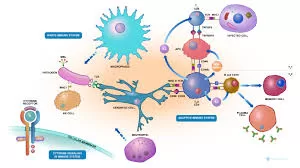17 March 2024 – Lucknow, India
The National Institute of Cancer Prevention and Research (NICPR), under the Indian Council of Medical Research (ICMR), has embarked on a comprehensive survey to evaluate the availability of cancer services across Uttar Pradesh. This initiative aims to address the pressing need for enhanced cancer care infrastructure and services in the state, which faces a significant burden of cancer cases.
Dr. Shalini Singh, Director of NICPR, reached out to Pinky Jowel, Mission Director of Uttar Pradesh National Health Mission, soliciting support from the state health machinery for the survey exercise. The survey targets primary health centers and district hospitals across 16 districts in Uttar Pradesh.
While the survey has been completed in Gautam Buddha Nagar, efforts are currently underway in Muzaffarnagar. The remaining districts slated for assessment include Rampur, Agra, Badaun, Lakhimpur Kheri, Lucknow, Auraiya, Lalitpur, Pratapgarh, Ayodhya, Gonda, Gorakhpur, Azamgarh, Jaunpur, and Mirzapur.
The significance of this survey is underscored by the staggering number of cancer cases reported annually in Uttar Pradesh, estimated at 2.1 lakh cases, the highest among Indian states. However, experts caution that this figure may underestimate the actual magnitude of the problem.
According to data from cancer registries at tertiary care institutions like the Sanjay Gandhi Postgraduate Institute of Medical Sciences (SGPGIMS), tobacco emerges as the primary cause of cancer among males in the state. More than 53% of cancers in men are attributed to tobacco use, while the corresponding figure for women stands at about 15%. On average, tobacco-related cancers account for 37.5% of all cases in Uttar Pradesh.
The most prevalent cancers linked to tobacco use include those affecting the oral cavity, lungs, and other upper aerodigestive sections. Prof. Punita Lal, senior faculty at SGPGI’s radiotherapy department, expressed concern over the high proportion of patients presenting in advanced stages of cancer, limiting treatment options for curative therapies.
The NICPR’s survey seeks to address these challenges by assessing the availability of cancer diagnosis services, including tests and human resources, at district hospitals and facilities below tertiary care centers. By identifying gaps in cancer care infrastructure and services, the survey aims to inform strategic interventions to improve cancer care delivery and reduce the burden of the disease in Uttar Pradesh.












